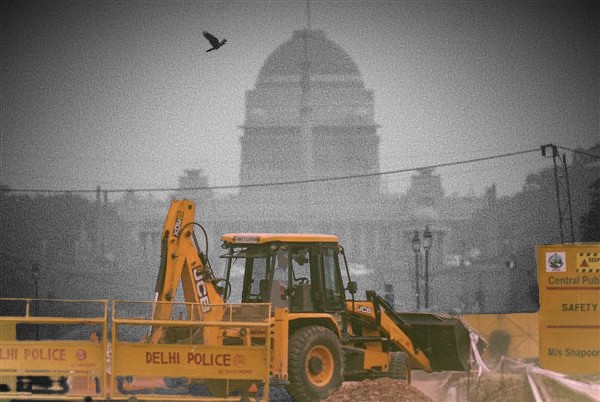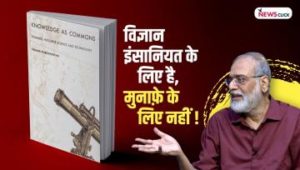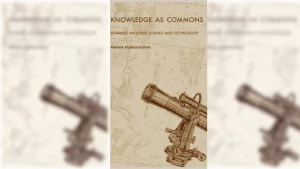A statement signed by scholars, artists and museum professionals, asking that the Government of India’s Central Vista Redevelopment Plan in New Delhi be halted immediately, given the public health emergency in India on account of a second wave of the Covid-19 pandemic. A global community of historians and curators who work on Indian and South Asian materials, express in particular their shared concern about the planned demolition of the National Museum, the National Archives and the Indira Gandhi National Centre for the Arts, and the relocation of the invaluable repositories of these key cultural institutions in a safe and responsible manner.

STATEMENT:
We, the undersigned call for an immediate halt to the Central Vista Redevelopment Project undertaken by the Government of India, which commenced in December 2020. The designation of this scheme as an ‘essential service’ invites fresh scrutiny of the plan. It is especially troubling that this extravagant project is moving ahead in the midst of a devastating pandemic, endangering workers, and squandering scarce resources that could be used to save lives.
We would like to draw particular attention to the upcoming demolition and relocation of the National Museum of India, the Indira Gandhi National Centre for the Arts (IGNCA), and the National Archives Annexe. In fact, preparations to raze the IGNCA complex are already underway. There was a clear logic in the urban planning of Delhi to keeping these cultural, archival and historical centres in close proximity to each other. The National Museum, in particular, has historical value and requires renovation and augmentation, not demolition. The rushed destruction of these structures will cause irrevocable harm to world-renowned institutions that have been painstakingly built over decades.
The Central Vista demolition threatens the collections of these heritage repositories. We are concerned that such a shift would impact the state of conservation of several objects. Even under normal circumstances, it would be a complex and risky operation to shift the diverse and irreplaceable treasures of the National Museum, the archival records held in the National Archives, and the manuscript holdings of the Indira Gandhi National Centre for the Arts. The current pandemic only exacerbates these risks.
The unilateral and hasty implementation of the Central Vista Redevelopment Project runs contrary to established practices worldwide. Across the globe, such plans to expand, relocate, repurpose or redesign key cultural institutions are preceded by widespread consultations and consensus building before finalizing the design, let alone moving collections indefinitely.
The details of the Central Vista demolition are opaque. It is unclear, for example, how the National Museum art objects will be stored and eventually displayed in the office complex of the North and South Blocks, as is planned. As the National Museum’s collection still lacks a complete inventory of its holdings, this relocation is hazardous. The extent to which these collections will continue to be publicly accessible is also unknown.
These demolitions are only one part of a mammoth undertaking that involves constructing a lavish new Parliament and turning open space into office blocks. The project as a whole will forever alter the historic urban plan of Lutyens’ Delhi, a piece of world heritage that has become an integral part of the cultural and political life of independent India.
The current escalating health crisis calls for a pause and a reset. For the short term, this project should be immediately suspended, and all priorities and resources directed to combating the pandemic. In the long term, however, this hiatus should be followed by extensive public consultations so that the future of India’s institutions, heritage architecture, and historical collections can be determined through a democratic process.
We urge the Government of India to reconsider its misguided scheme.
Naman Ahuja, Jawaharlal Nehru University
Ernst van Alphen, Leiden University
Sean Anderson, Museum of Modern Art
Arjun Appadurai, New York University
Catherine Asher, University of Minnesota (emerita)
Frederick M. Asher, University of Minnesota (emeritus)
Sussan Babaie, Courtauld Institute of Art, London
Mieke G. Bal, Amsterdam School of Cultural Analysis (ASCA).
Tim Barringer, Yale University
Homi Bhabha, Harvard University
Bronwen Bledsoe, Cornell University
Sugata Bose, Harvard University
John H. Bowles, Writer and curator
Arpana Caur, Artist, Delhi
Prem Chandavarkar, Architect and independent researcher, Bengaluru
Dipesh Chakrabarty, University of Chicago
Partha Chatterjee, Columbia University
Divya Cherian, Princeton University
Iftikhar Dadi, Cornell University
Asok Das, Maharaja Sawai Man Singh II Museum, Jaipur (retired)
Catherine David, MNAM-Centre Pompidou, Paris
Rohit De, Yale University
Vidya Dehejia, Columbia University
Chris Dercon, Réunion des Musées Nationaux-Grand Palais, Paris
Faisal Devji, University of Oxford
Bernard Fibicher, Fine Arts Museum Lausanne
Supriya Gandhi, Yale University
Annapurna Garimella, art historian, Hyderabad
Alain George, University of Oxford
Ramachandra Guha, Historian and biographer
Narayani Gupta, Jamia Millia Islamia (retired)
Vivek Gupta, University of Cambridge
Navina Najat Haidar, Art historian and curator
Githa Hariharan, Writer
John Stratton Hawley, Barnard College, Columbia University
Andreas Huyssen, Columbia University (emeritus)
Kajri Jain, University of Toronto
Sir Anish Kapoor, Artist
Geeta Kapur, Art critic and curator
Sudipta Kaviraj, Columbia University
Madhu Khanna, Historian of religion and art
Rajeev Kinra, Northwestern University
Pradip Krishen, Filmmaker and environmentalist
Aparna Kumar, University College London
Glenn Lowry, Museum of Modern Art
Sir James Mallinson, SOAS, University of London
Saloni Mathur, University of California, Los Angeles
Rahul Mehrotra, Harvard University Graduate School of Design
A.G. Krishna Menon, Architect, urban planner, and conservation consultant
Parul Dave Mukherji, Jawaharlal Nehru University
Neeti Nair, University of Virginia, Charlottesville
Ashis Nandy, Centre for the Study of Developing Societies
Gülru Necipoğlu, Harvard University
Francesca Orsini, SOAS, University of London (emerita)
Alka Patel, University of California, Irvine
Orhan Pamuk, Writer, Columbia University
Margrit Pernau, Max Planck Institute for Human Development
Sheldon Pollock, Columbia University
Gyan Prakash, Princeton University
Suhanya Raffel, M+ Museum, Hong Kong
Ram Rahman, photographer, SAHMAT (The Safdar Hashmi Memorial Trust)
Sugata Ray, University of California, Berkeley
Scott Redford, SOAS, University of London
D. Fairchild Ruggles, University of Illinois, Urbana-Champaign
Chaitanya Sambrani, Australian National University
G. M. Sheikh, Artist, Vadodara
Nilima Sheikh, Artist, Vadodara
Kavita Singh, Jawaharlal Nehru University
Gayatri Chakravorty Spivak, Columbia University
Martino Stierli, Museum of Modern Art
Susan Stronge, Victoria and Albert Museum, London
Vivan Sundaram, Artist, Delhi
Romila Thapar, Jawaharlal Nehru University (emerita)
Ananya Vajpeyi, Centre for the Study of Developing Societies
Ashok Vajpeyi, Poet, critic and essayist
James Wescoat, Massachusetts Institute of Technology (emeritus)



